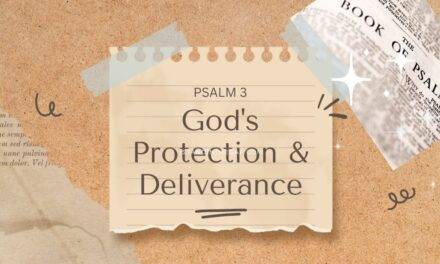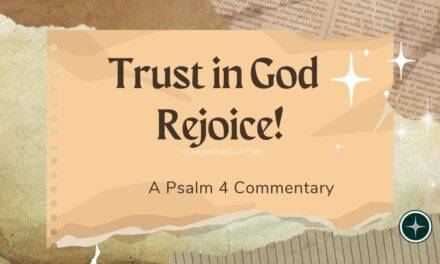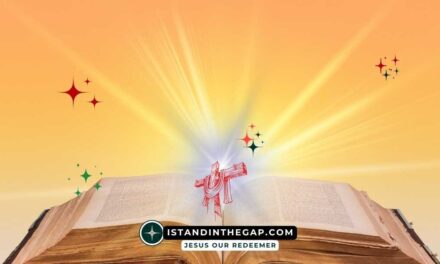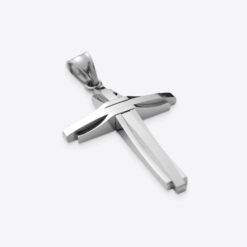In this introduction, I give background for the book of Psalms and Psalm 1. The Book of Psalms is a collection of songs and prayers by many authors over about a thousand years. King David wrote 73 of the Psalms and others were by Moses, Asaph, the sons of Korah, and a few by Solomon and others.
After the exile, Ezra the scribe likely collected and organized the Psalms into five books.
Psalm 1 opens Book One and is often called a wisdom psalm. It sets a tone of two paths – one leading to blessing, the other to ruin.
It shows that following God’s way brings joy and prosperity, while following worldly ways leads to failure.
This extensive examination of this fundamental biblical passage will delve into themes such as delighting in God’s law, living a blameless life, and receiving God’s blessings.
The commentary will cover the entire text in the NKJV, including the background, themes, and reflections on the relevance of the Psalm to the Christian. We will also conclude with a prayer on seeking God’s guidance in living a righteous life.
Psalm 1 Commentary
Psalm 1 is a powerful wisdom psalm that offers valuable guidance on how to live a righteous and blessed life.
Through its contrasting portrayal of the fate of the righteous and the wicked, this Psalm encourages the reader to choose the path of righteousness and avoid the path of the wicked.
Key Takeaway
- Blessed is the person who delights in God’s law and avoids bad advice. The lesson of Psalm 1 is that choosing God’s way leads to a fruitful, stable life, but siding with ungodly ways brings emptiness and ruin
Historical Context
Psalm 1 comes from ancient Israel, likely in the wisdom tradition (like Proverbs). It was written for God’s covenant people to teach wise living.
The imagery in Psalm 1 (trees, rivers, chaff) reflects everyday life in the Old Testament world. Israelites, an agrarian society, would easily relate to a tree by water and chaff in the wind.
The psalm contrasts two groups in the nation: the righteous (those who follow God) and the wicked (those who reject Him). This theme of two ways – blessing vs. curse, life vs. death – was familiar to God’s people and echoes earlier covenant promises (e.g. Deuteronomy 28).
Literary Structure
Psalm 1 is a Hebrew poem divided into two main parts.
- Verses 1–3 describe the way of the righteous, and
- Verses 4–6 describe the way of the wicked.
The psalm opens with a beatitude: “Blessed is the man…”, which echoes blessings in the Law of Moses and the Gospels. It uses parallelism (common in Hebrew poetry) to compare opposites.
For example, the righteous person is described by what he avoids (walking, standing, sitting with evil people) and by what he pursues (delighting in God’s law). This stepwise list walking, standing, sitting, may show how someone can slowly fall into sin if not careful.
The contrasting second part uses images:
- The wicked are like chaff driven by the wind, while
- The righteous are like a healthy tree by a stream.
The final verse (Psalm 1:6) closes the structure by stating God’s judgment: He watches over the righteous, but the ungodly are lost.
Key Themes
- The Two Ways (Righteous vs. Wicked): The main theme is the stark contrast between two ways of life. One path is godly and blessed, the other is sinful and cursed. From the start, the psalm tells us there is a choice to make and that our decisions lead to very different ends (life and blessing vs. death and ruin).
- Blessing Through God’s Word: True blessing comes from “the man” who loves God’s Word. The righteous person finds deep joy and contentment (blessedness) by taking God’s law to heart. Psalm 1 shows that meditating on Scripture day and night makes a believer happy and wise.
- Avoiding Evil Counsel: The psalm repeatedly urges us to avoid the influence of bad people. The blessed person does not walk in the advice of the wicked, stand in the way of sinners, or sit with mockers. In other words, he is careful about whose company and counsel he accepts. This teaches that our mind-set, actions, and friendships shape our spiritual health.
- Fruitfulness vs. Futility: A key image contrasts fruit and chaff. The righteous are like a well-watered tree that “bears fruit” and whose leaves do not wither. In life, God makes good things grow from the efforts of a godly person (spiritual fruit, good works). The wicked, however, are like lightweight chaff, the worthless husk of grain that the wind blows away. Chaff stands for emptiness and ultimate worthlessness. This theme teaches that following God produces lasting value, while the ungodly lifestyle leads to nothing in the end.
- God’s Sovereignty and Judgment: The psalm ends by affirming that God Himself sees and guides the righteous, but the wicked will perish (Psalm 1:6). The Lord “knows” the way of those who honor Him; this verb suggests intimate care and approval. In contrast, sinners have no secure place and face God’s judgment. In short, God blesses obedience and allows sin to self-destruct.
Key Verses
- Psalm 1:1: “Blessed is the man who walks not in the counsel of the ungodly…” – This verse opens the psalm with a beatitude. “Blessed” means truly happy and content. A godly person does not follow wrong advice.
- Walking, standing, sitting describe a progression of actions; the righteous avoid all three: he won’t start on the path of sin, and certainly won’t stay there or settle there. In short, he keeps his distance from evil influences.
- Psalm 1:2–3: “But his delight is in the law of the LORD, and in His law he meditates day and night… He shall be like a tree planted by the rivers of water, that brings forth its fruit in its season…” These verses shift to the positive description. The blessed person loves God’s Word (the “law of the LORD”) and constantly thinks about it.
- The image of a tree shows the result: like a tree by water, the righteous are well-nourished, stable, and fruitful. The tree always has what it needs and never dries up. It produces fruit in season, meaning a godly life yields good results (like love, joy, kindness) in its own time. Whatever this tree (person) does, prospers spiritually, because God sustains him.
- Psalm 1:4: “The ungodly are not so, but are like the chaff which the wind drives away.” – Here the psalmist contrasts the wicked. They are not like the strong tree. Instead, they are compared to chaff.
- Chaff is the light outer husk of grain – easily blown away by the wind, of no use. This verse teaches that wicked people are unstable and lacking real substance. They may appear to stand for a while, but in the end they have no life of their own and will be scattered (like chaff).
- Psalm 1:5: “Therefore the ungodly shall not stand in the judgment, nor sinners in the congregation of the righteous.” – Because the wicked are chaff, they cannot endure God’s judgment. On the day of God’s judgment, they “shall not stand” – they will be found lacking.
- They have no part in the assembly (“congregation”) of godly people. This can also be understood practically: unbelievers have no place in the community of the faithful if they refuse to repent. The point is clear: wickedness leads away from life with God.
- Psalm 1:6: “For the LORD knows the way of the righteous, but the way of the ungodly shall perish.” – This key verse sums it up. The word “knows” here means God intimately watches over and blesses the righteous.
- In contrast, the path of the wicked leads to destruction. One commentator notes that verse 6 is the key to understanding Psalm 1: it contrasts the two ways – the righteous way known by God and the ungodly way which ends in ruin. In effect, it reassures believers that God cares for those who follow Him, while warning that rejecting God’s way ends badly.
Interpretation
-
 Ladies Lightweight Trust in God Hoodie – Psalm 56:3Price range: $39.95 through $42.95
Ladies Lightweight Trust in God Hoodie – Psalm 56:3Price range: $39.95 through $42.95 -
Product on sale
 God Is Good Christian HoodiePrice range: $42.99 through $52.99
God Is Good Christian HoodiePrice range: $42.99 through $52.99 -
 Adidas Duffle Trust in God Bag – Psalm 56:3$84.95
Adidas Duffle Trust in God Bag – Psalm 56:3$84.95 -
 Arise Shine Bomber Jacket EmbroideredPrice range: $69.95 through $71.95
Arise Shine Bomber Jacket EmbroideredPrice range: $69.95 through $71.95
I interpret Psalm 1 as an instruction about choosing wisely in life. It teaches that the decisions we make every day (what we think about and who we spend time with) shape our future.
The original audience (ancient Israel) heard this as guidance under the covenant: if you love God’s law and avoid evil, you thrive; if not, you face ruin.
For Christians today, Psalm 1 still means: fill your mind with God’s Word and avoid harmful influences.
The psalmist is basically saying, “There are two ways to live – pick the right one.” This is why Jesus later called those who follow God “blessed” (Matthew 5:3–11).
The lesson is timeless: meditating on God’s teachings leads to a stable, fruitful life, whereas following bad advice leads to emptiness.
The Battle is the Lord’s!
-
 The Battle is the Lord’s Short Sleeve T-shirtPrice range: $23.95 through $27.95
The Battle is the Lord’s Short Sleeve T-shirtPrice range: $23.95 through $27.95 -
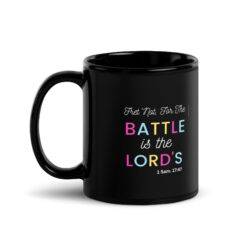 The Battle is the Lord’s Black Glossy MugPrice range: $13.95 through $14.95
The Battle is the Lord’s Black Glossy MugPrice range: $13.95 through $14.95 -
 The Battle is the Lord’s Embroidered Women’s Relaxed T-ShirtPrice range: $22.45 through $26.45
The Battle is the Lord’s Embroidered Women’s Relaxed T-ShirtPrice range: $22.45 through $26.45 -
 Men Trust in God Lightweight Hoodie – Psalm 56:3Price range: $39.95 through $43.95
Men Trust in God Lightweight Hoodie – Psalm 56:3Price range: $39.95 through $43.95
Relevance Today
Psalm 1 is highly relevant for modern believers. It reminds us that finding joy and purpose comes from God’s Word and His ways, not from popular culture or negative influences.
In today’s world, “evil counsel” might be temptations in media, peer pressure, or harmful habits. The psalm encourages readers to fill their minds with Scripture instead.
When Christians delight in God’s Word each day, they become “like trees” – spiritually healthy and resilient (even in hardship).
The final promise, that the Lord watches over the righteous, gives assurance.
In our present age, knowing that God cares for us when we live by His word is very comforting.
Psalm 1 also warns us to avoid the path that so easily leads to moral compromise and its painful end.
This warning is a call to live with an eternal perspective, to invest in what truly lasts (God’s will) and not what blows away.
The relevance of Psalm 1 for the Christian lies in the message to pursue righteousness and obedience to God. It is a reminder that the choices we make and the path we choose to follow will determine our end.
As Christians, we are called to follow the path of righteousness and to live a life that is pleasing to God.
The relevance of Psalm 1 for the Christian in the present dispensation is that it highlights the importance of following God’s law and leading a righteous life. The themes of obedience, trust in God, and the consequences of one’s actions are timeless, and the principles outlined in Psalm 1 can still be applied to the lives of modern Christians.
In the present dispensation, Christians can find comfort in knowing that God still rewards those who follow his ways and punishes those who reject his laws. This encourages believers to strive to live according to His commands and trust in his sovereignty and goodness. The psalm also serves as a reminder that our actions have consequences, and that we should strive to live in a way that is pleasing to God and aligns with his will.
Additionally, Psalm 1 provides comfort and hope in the face of trials and temptations. The blessings of the righteous described in the psalm remind us that even though we may face difficulties in this life, God is always present and will reward us in the end.
Application
Psalm 1 offers many practical lessons for daily life:
- Meditate on Scripture: Make reading the Bible a daily habit, morning and night, just like the psalm says. We can set aside time to think deeply about God’s Word. One commentator urges us to keep God’s law “in our thoughts night and day”.
- For example, I can memorize a verse each week, pray about it, and see how it guides my choices.
- Choose good company: Psalm 1 warns against bad influences. Practically, this means I should be careful about who I listen to or follow.
- For instance, I can choose friends and counselors who love God, instead of those who encourage me to do wrong. Even online, I should avoid content that turns my mind away from God’s values.
- Stay rooted in God: The image of the tree reminds me to stay connected to God. I can pray each day and trust God’s leading so I draw spiritual strength from Him.
- When challenges come, like job stress or family problems, I rely on God (the water source) to keep me steady and hopeful.
- Bear good fruit: Just as a healthy tree naturally bears fruit, a life lived for God shows good deeds and character. I can look for opportunities to love others, help my neighbor, and act kindly.
- If I find my actions or attitudes withering, it’s a sign I need to get back to Scripture and prayer to refresh my spiritual roots.
- Evaluate my path: Psalm 1 calls for honest self-check. I might ask: Am I walking in God’s counsel? If not, I can repent and turn back to God. Verses 5–6 remind us that sticking with sin only ends in failure.
- Knowing this, I feel encouraged to pursue the “way of life” by God’s grace, because He promises to guide and bless the righteous.
Verse-by-Verse Explanation
- Verse 1: The blessed person doesn’t follow evil advice. He won’t even start down a bad path (“walk”); he won’t linger in sin’s way (“stand”); and he definitely won’t settle among mockers (“sit”). In other words, he keeps clear of every step of wrongdoing.
- Verse 2: Instead, he finds joy in God’s teachings (“the law of the LORD”). His greatest happiness comes from God’s Word.
- Verse 3: He thinks about God’s Word all the time (“meditates day and night”). The result is like being a green tree by rivers: he is nourished and strong. That tree bears fruit at the right time and never dies, symbolizing a life that always prospers spiritually.
- Verse 4: The wicked are different. They have none of the strength of the tree. Verse 4 says “the ungodly are not so, but are like chaff”. Chaff is the useless husk that the wind blows away. This verse means the wicked are unstable and temporary – whatever they build or claim is ultimately worthless.
- Verse 5: Because of this, the wicked cannot stand in God’s judgment. They are not able to face God’s examination; they will fail and be thrown out. It also means sinners have no place among the godly community, neither now nor in eternity.
- Verse 6: Finally, “the LORD knows the way of the righteous, but the way of the ungodly shall perish.” God intimately knows and cares for those who follow Him, guiding their steps. But those who reject God will see their path end in destruction. This sums up the whole psalm: God rewards obedience and punishes rebellion.
Conclusion
Psalm 1 is a powerful opening to the Psalter. It clearly teaches that there are two paths in life: one leads to blessing and one to disaster.
It urges readers to love and trust God’s Word and to avoid the counsel of the wicked. The psalm’s vivid images, a flourishing tree versus useless chaff, make its message memorable.
Ultimately, Psalm 1 reminds us that God blesses those who walk His way and removes those who refuse Him. In summary, living by God’s Word brings genuine happiness and success, while ignoring it brings emptiness and ruin.
Psalm 1 provides a powerful message of hope, encouragement, and guidance for the righteous person. A look at the themes of obedience, trust in God, and the consequences of one’s actions are timeless and can be applied to the lives of modern Christians.
Through this psalm, we are reminded that living a righteous life, following God’s law, and trusting in his sovereignty and goodness will bring blessings and prosperity.
As we read and reflect on Psalm 1, we are encouraged to choose a righteous path, strive to live according to God’s will, and trust in his sovereignty. The psalm is a powerful reminder that God is always aware of our choices and will reward or punish us accordingly and that living a life pleasing to Him is non-negotiable.
So, let us follow the example of the righteous in Psalm 1, trusting in God and striving to live according to the will of God.
May we be blessed with prosperity and peace as we trust in the Lord and seek to live righteous lives.
Prayer
Heavenly Father, thank You for guiding us through Your Word. Please make me like the blessed person in Psalm 1. Help me avoid bad advice and keep away from harmful influences.
Fill my heart with delight in Your law, and help me meditate on Your teachings day and night. Plant me like a tree by streams of living water, strong and fruitful for You.
Guard my steps, Lord, for I trust that You know the way of the righteous. Keep me on the path of life.
In Jesus’ name I pray, Amen.
-
Product on sale
 Divine Touch Vinyl Decal Christian Faith Car Sticker for All SurfacesOriginal price was: $14.60.$9.49Current price is: $9.49.
Divine Touch Vinyl Decal Christian Faith Car Sticker for All SurfacesOriginal price was: $14.60.$9.49Current price is: $9.49. -
Product on sale
 Jesus Cross Unisex Heavy Blend HoodiePrice range: $42.99 through $52.99
Jesus Cross Unisex Heavy Blend HoodiePrice range: $42.99 through $52.99 -
Product on sale
 Jesus Cross Unisex Sponge Fleece HoodieOriginal price was: $50.99.$38.99Current price is: $38.99.
Jesus Cross Unisex Sponge Fleece HoodieOriginal price was: $50.99.$38.99Current price is: $38.99. -
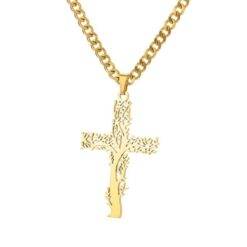 Gold-Plated Zircon Cross Pendant Necklace for Women – 2023 Trending Christmas Jewelry$15.95
Gold-Plated Zircon Cross Pendant Necklace for Women – 2023 Trending Christmas Jewelry$15.95
FAQs
What is the main point of Psalm 1?
The main point of Psalm 1 is to choose righteousness, trust in God, and live a life pleasing to Him, leading to prosperity and blessings. It contrasts the righteous and the wicked, highlighting the consequences of their actions, and reminds the reader that God will reward or punish them according to their choices.
What does the book Psalm 1 explain?
Psalm 1 is a song of praise and worship to God that encourages the reader to choose a righteous path and trust in God. It contrasts the lives of the righteous and the wicked, emphasizing the consequences of their choices, and reminds the reader that God is aware and will reward or punish accordingly. Living a life pleasing to God leads to prosperity and blessings.
Who wrote Psalms 1 and why?
Psalm 1 was likely written by King David, a revered figure in Jewish history who is credited with writing many of the psalms. The purpose of writing Psalm 1 was likely to encourage righteousness and trust in God, and to contrast the lives of the righteous and wicked, highlighting the consequences of their actions.
What does “Blessed is the man” mean in Psalm 1?
“Blessed” means truly happy or content. In Psalm 1 it says a person is blessed (happy) when he avoids evil advice and loves God’s Word. It’s saying that God rewards those who follow Him.
Why does the psalm 1 mention walking, standing, and sitting?
These verbs show a progression. “Walking in counsel of the ungodly” is like following bad advice; “standing in the path” is continuing in sin; “sitting in the seat of mockers” is settling into sinful life. This teaches that sin can creep in step by step, so we must resist it at every stage.
What is the “law of the LORD” referred to in verse 2?
It means the whole body of God’s Word, not just the Old Testament law. Psalm 1 uses “law” to mean God’s teachings. Delighting in the law means loving God’s instructions and living by them.
Why is the righteous person compared to a tree?
A tree planted by water never runs out of water, so it stays healthy and bears fruit. The psalm uses this picture to show how a person who trusts God is strong and productive. The “fruit” is like the good deeds and character that grow from a godly life.
Can any person be the “man” spoken of in Psalm 1?
Yes. “The man” or “the person” here can be anyone (man or woman) who chooses God’s way over the way of sin. Everyone who delights in God’s Word can be that blessed person. It’s a call for each of us to make right choices and follow God.
References
- BibleProject. (2025). Psalm 1. BibleProject. Retrieved from https://bibleproject.com/videos/psalm-1/
- Explaining The Book. (2025, March 1). Psalm 1 – Literary Analysis: A Christ-Centered Perspective. Retrieved from https://explainingthebook.com/2025/03/01/psalm-1-literary-analysis/
- Guzik, D. (n.d.). Psalm 1 – The Way of the Righteous and the Way of the Ungodly. Enduring Word Bible Commentary. Retrieved from https://enduringword.com/bible-commentary/psalm-1/
- Henry, M. (n.d.). Commentary on Psalm 1. In Matthew Henry’s Concise Commentary on the Whole Bible. BibleStudyTools. Retrieved from https://www.biblestudytools.com/commentaries/matthew-henry-concise/psalms/1.html
- Jones, D. W. (2020, April 17). Psalms: Introduction – Psalm 1. Redeemed Mind. Retrieved from https://redeemedmind.com/2020/04/17/psalms-introduction-psalm-1/
- GotQuestions.org. (2024, March 4). Who wrote the book of Psalms? Retrieved from https://www.gotquestions.org/who-wrote-the-book-of-Psalms.html



